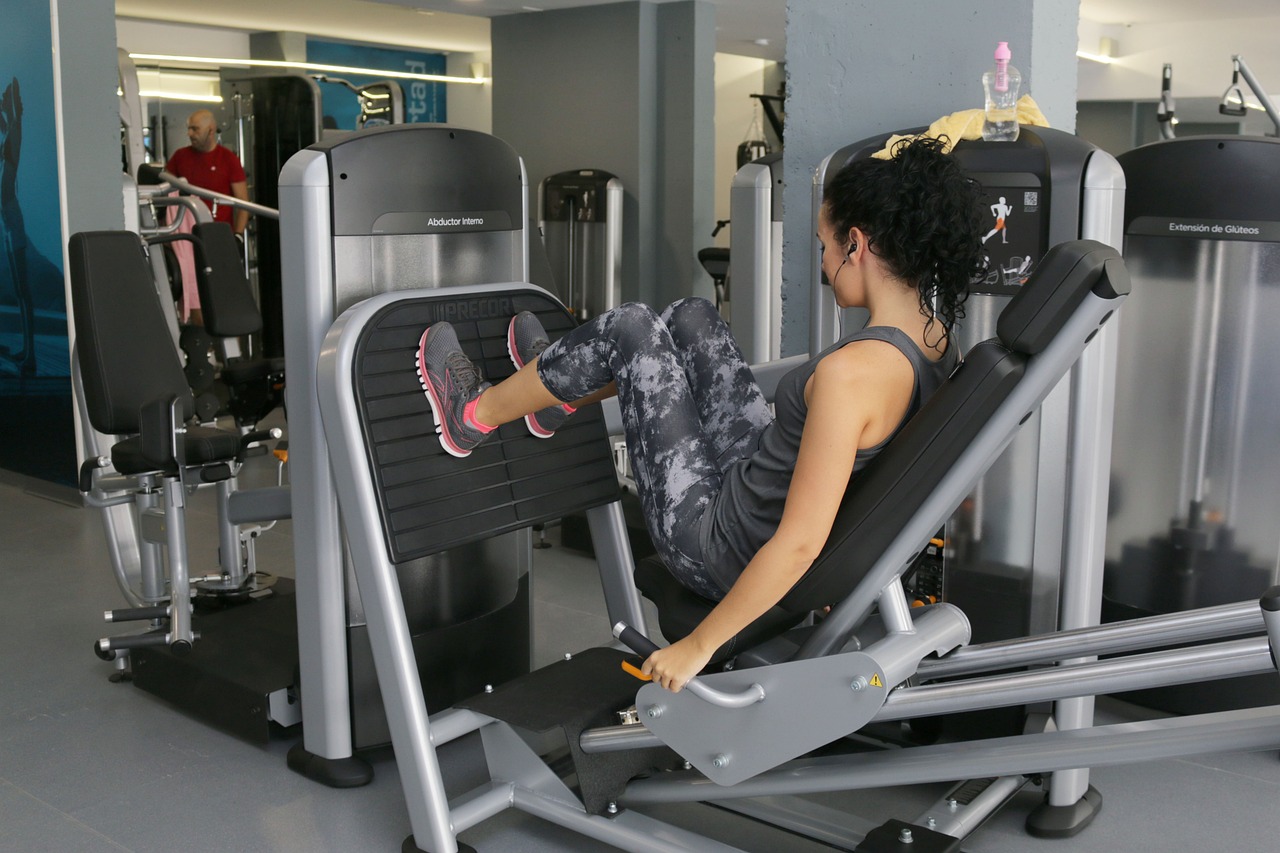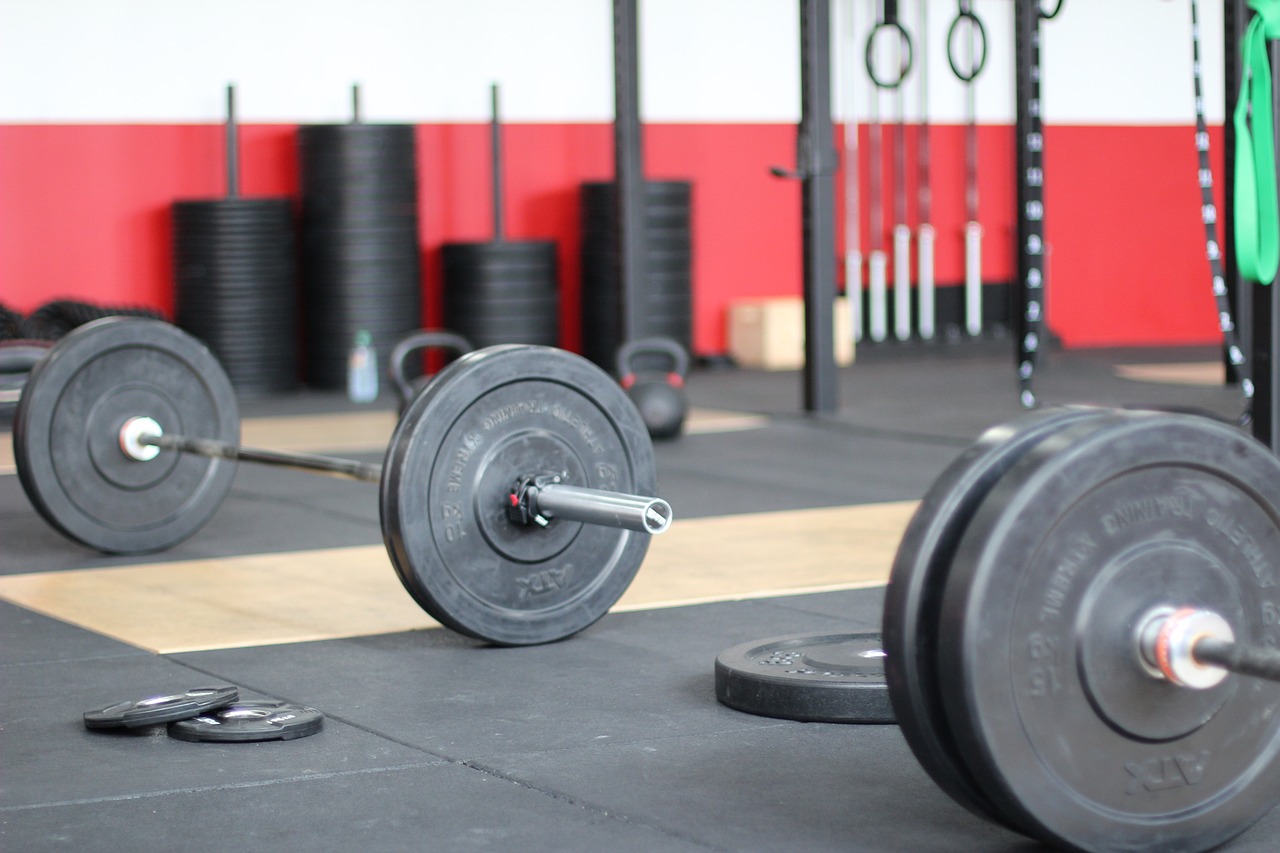In the pursuit of fitness, it's easy to fall into traps that seem like healthy habits but could be doing more harm than good. From overdoing it at the gym to neglecting essential aspects of recovery, certain practices may sabotage your fitness goals without you even realizing it. Here are 10 workout habits that might appear beneficial on the surface but could be holding you back from achieving optimal health and fitness.
1. Excessive Cardio
Pounding the pavement or logging hours on the treadmill might seem like the ultimate calorie-burning strategy, but excessive cardio can lead to muscle loss and increased stress on your joints. Instead of solely focusing on cardio, incorporate strength training to build muscle, boost metabolism, and protect against injury. Balance is key; aim for a mix of cardio, strength training, and flexibility work for a well-rounded fitness routine.
 Image by Stan Madoré from Pixabay
Image by Stan Madoré from Pixabay
2. Ignoring Proper Form
Form over everything! While lifting weights or performing any exercise, prioritize proper form to prevent injuries and maximize results. Sacrificing form for heavier weights or faster repetitions can lead to strains, sprains, or even long-term damage. Take the time to learn correct form from a qualified trainer or reputable resources, and always listen to your body's cues. Quality reps trump quantity every time.
 Image by Alterio Felines from Pixabay
Image by Alterio Felines from Pixabay
3. Skipping Warm-ups and Cool-downs
Rushing into a workout without warming up or cooling down is like starting a car in freezing temperatures without letting it idle first. Skipping these crucial steps increases the risk of injury and impedes recovery. Dedicate time to dynamic stretches and mobility exercises to prepare your body for the workout ahead, and don't forget to wind down with static stretches and deep-breathing exercises to aid in recovery and reduce muscle soreness.
 Image by Jenia Nebolsina from Pixabay
Image by Jenia Nebolsina from Pixabay
4. Overtraining
More isn't always better, especially when it comes to exercise. Overtraining can lead to fatigue, decreased performance, and an increased risk of injury. Your body needs time to rest and recover to adapt to the stress of exercise and grow stronger. Incorporate rest days into your routine and listen to your body's signals; if you're constantly fatigued or experiencing persistent soreness, it might be time to dial back the intensity.
5. Obsessing Over the Scale
While tracking progress is essential for motivation, fixating solely on the number on the scale can be detrimental to your mental and physical health. Weight fluctuates due to various factors like water retention and muscle gain, which can lead to frustration and demotivation. Instead of obsessing over the scale, focus on non-scale victories like improved strength, endurance, and overall well-being.
 Image by Vidmir Raic from Pixabay
Image by Vidmir Raic from Pixabay
6. Restrictive Eating Habits
Food is fuel! Pairing intense workouts with restrictive diets can deprive your body of essential nutrients and energy needed for optimal performance and recovery. Fuel your body with a balanced diet rich in whole foods to support your fitness goals and overall health.
 Image by Steve Buissinne from Pixabay
Image by Steve Buissinne from Pixabay
7. Relying Solely on Supplements
Supplements can be helpful additions to a well-rounded fitness regimen, but they should not be relied upon as a substitute for proper nutrition and training. While certain supplements may offer benefits such as improved recovery or performance, they cannot compensate for a poor diet or lackluster workout routine.
 Image by MasterTux from Pixabay
Image by MasterTux from Pixabay
8. Pushing Through Pain
No pain, no gain, right? Wrong. While some discomfort during exercise is normal, pushing through sharp or persistent pain can lead to serious injury. Listen to your body and distinguish between discomfort that comes with pushing your limits and pain that signals potential harm. If something doesn't feel right, err on the side of caution and modify or stop the exercise altogether.
 Image by Peggy und Marco Lachmann-Anke from Pixabay
Image by Peggy und Marco Lachmann-Anke from Pixabay
9. Comparing Yourself to Others
The fitness journey is deeply personal, and comparing your progress to others can breed dissatisfaction and undermine your confidence. Remember that everyone's body is different, and progress looks different on every individual. Focus on your own journey, celebrate your achievements, and strive for progress over perfection.
 Image by StockSnap from Pixabay
Image by StockSnap from Pixabay
10. Neglecting Recovery
Recovery is just as important as the workout itself. Neglecting proper recovery practices like adequate sleep, hydration, and nutrition can hinder progress and increase the risk of injury and burnout. Prioritize sleep hygiene to ensure quality rest, stay hydrated throughout the day, and consume nutrient-dense foods to support muscle repair and growth. Incorporate foam rolling, yoga, or leisurely walks to enhance circulation and reduce muscle tension.
 Image by Indhira Adhista from Pixabay
Image by Indhira Adhista from Pixabay
From nurturing consistency to prioritizing recovery, these practices form the cornerstone of a sustainable and fulfilling fitness journey. Let's explore 10 workout habits that might not grab the headlines but are undeniably beneficial for achieving optimal health and wellness.
1. Consistency Over Intensity
Instead of sporadic bursts of intense activity followed by extended periods of inactivity, prioritize consistency in your workout routine. Regular, moderate exercise builds a strong foundation for long-term health and sustainable progress. Aim for achievable goals and establish a routine that you can stick to over the long haul.
2. Listening to Your Body
Your body is a remarkable machine that communicates its needs through various signals. Tune in to these cues and adjust your workouts accordingly. If you're feeling fatigued, give yourself permission to take a rest day or opt for a lighter workout. Trusting your body's wisdom gives you a healthier relationship with exercise and reduces the risk of burnout or injury.
3. Prioritizing Proper Nutrition
Exercise and nutrition go hand in hand. Fuel your body with nutrient-dense foods that provide sustained energy and support muscle repair and growth. Emphasize a balanced diet rich in lean proteins, whole grains, fruits, and vegetables to optimize performance and recovery. Remember, food is fuel, so choose wisely to nourish your body from the inside out.
 Image by Marijana from Pixabay
Image by Marijana from Pixabay
4. Incorporating Functional Movement
Functional movement mimics real-life activities and enhances overall mobility, stability, and strength. Instead of solely focusing on isolated exercises, incorporate functional movements like squats, lunges, and planks into your workouts. These compound exercises engage multiple muscle groups simultaneously, improving coordination and joint stability while enhancing overall functional fitness.
5. Setting Realistic Goals
Setting goals provides direction and motivation, but they must be realistic and achievable to be effective. Avoid setting lofty, unrealistic targets that leave you feeling discouraged and overwhelmed. By setting realistic goals, you set yourself up for success and cultivate a sense of accomplishment that fuels further progress.
6. Incorporating Variety
Mix up your routine with different activities, such as swimming, cycling, yoga, or dance, to challenge your body in new ways and stimulate continued growth. Cross-training not only improves overall fitness but also enhances mental engagement and prevents boredom.
7. Practicing Mindfulness
Pay attention to the sensations in your body as you move, focusing on your breath and form. Incorporate mindfulness techniques such as deep breathing or visualization to enhance focus and reduce stress during workouts. By practicing mindfulness, you not only maximize the benefits of exercise but also gain a deeper connection between mind and body.
 Image by StockSnap from Pixabay
Image by StockSnap from Pixabay
8. Hydrating Adequately
Hydration is essential for optimal performance and recovery. Dehydration can impair physical and cognitive function, leading to fatigue, cramps, and decreased exercise performance. Make it a habit to drink water before, during, and after your workouts to replenish fluids lost through sweat.
 Image by congerdesign from Pixabay
Image by congerdesign from Pixabay
9. Prioritizing Recovery
Recovery is where the magic happens. Give your body the time and resources it needs to repair and rebuild between workouts. Incorporate rest days into your routine to prevent overtraining and promote muscle recovery. Explore recovery modalities such as foam rolling, massage, or stretching to reduce muscle tension and improve flexibility.
 Image by Belloso & Herchen GbR from Pixabay
Image by Belloso & Herchen GbR from Pixabay
10. Celebrating Progress, Not Perfection
In a world obsessed with perfection, it's essential to celebrate progress, no matter how small. Instead of fixating on flaws or setbacks, focus on the strides you've made and the obstacles you've overcome. Every workout, every healthy meal, and every positive choice brings you one step closer to your goals.
 Image by Engin Akyurt from Pixabay
Image by Engin Akyurt from Pixabay













